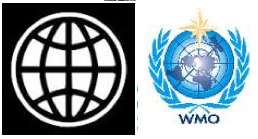A World Bank report, titled 'Weather and Climate Resilience: Effective Preparedness through National Meteorological and Hydrological Services (NMHSs),' urges countries to modernize and invest in well-equipped and fully staffed meteorological and hydrological agencies to better prepare for natural hazards, which could save an average of 23,000 lives annually and provide up to US$30 billion a year in economic benefits.
 27 November 2013: A World Bank report, titled ‘Weather and Climate Resilience: Effective Preparedness through National Meteorological and Hydrological Services (NMHSs),’ urges countries to modernize and invest in well-equipped and fully staffed meteorological and hydrological agencies to better prepare for natural hazards, which could save an average of 23,000 lives annually and provide up to US$30 billion a year in economic benefits.
27 November 2013: A World Bank report, titled ‘Weather and Climate Resilience: Effective Preparedness through National Meteorological and Hydrological Services (NMHSs),’ urges countries to modernize and invest in well-equipped and fully staffed meteorological and hydrological agencies to better prepare for natural hazards, which could save an average of 23,000 lives annually and provide up to US$30 billion a year in economic benefits.
The report, jointly launched by the Global Facility for Disaster Reduction and Recovery (GFDRR), a World Bank-managed multi-partner initiative, and the World Meteorological Organization (WMO), highlights recent World Bank Group experience and offers guidance on good practices to help modernization efforts. The synthesis of the experiences of the World Bank, GFDRR, WMO and other development partners will increase awareness of the role of the WMO and NMHSs in improving economic performance and supporting sustainable development.
Rachel Kyte, Vice-President for Sustainable Development, World Bank, said that every dollar spent on early warning saves up to US$35 in disaster response. She called for a shift in focus from prevention to preparedness as the intensity and frequency of extreme weather, such as tropical storms, floods and droughts, increase due to climate change.
Coordinated by WMO, NMHSs form a global network that shares weather and climate observations and forecasts, which are vital for identifying and forecasting hazardous events. These institutions support government efforts aimed at building national climate resilience, working in close collaboration with disaster management and health agencies, the media and economic sectors. The information they provide is critical for disaster risk management, climate adaptation and sustainable economic development.
The World Bank, GFDRR, WMO and other partners will continue working together to strengthen national capacities to develop and exchange reliable, timely and accurate forecasts of severe weather events and climate variability. Such strengthening should aim to transform weak agencies, especially in developing countries, into robust professional agencies capable of delivering “the right information to the right people at the right time.” Although the costs of modernizing and sustaining NMHSs will be considerable, the report argues that the benefits will be much greater. [Publication: Weather and Climate Resilience: Effective Preparedness through National Meteorological and Hydrological Services] [World Bank Press Release]